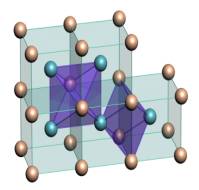Un recorrido histórico por la figura de Karl König y el movimiento Camphill: del “ayer” al “hoy”
Palabras clave:
Movimiento Camphill, personas con diversidad funcional, necesidades especiales, pedagogía social, pedagogía curativa, socioterapia.Resumen
El presente artículo realiza un recorrido histórico por la figura del pediatra austriaco Karl König (1902-1966) y del Movimiento Camphill que fundó. Movimiento internacional de comunidades terapéuticas para las personas con necesidades especiales o con diversidades funcionales (discapacidades). Comienza con unas pinceladas sobre su vida y trabajo, para ir profundizando y recoger los ideales de dicho Movimiento en nuestros días. Se realiza un análisis histórico por décadas hasta la actualidad. Recorrido que va desde los difíciles inicios, cuando el Dr. König, junto con otros colegas en 1939, huyendo de la opresión nazi con sus familias, crearon la Primera Comunidad Camphill Rudof Steiner para niños con necesidades especiales en Aberdeen (Escocia). Y todos los esfuerzos posteriores para seguir creando organizaciones y métodos. König atendió a las personas con necesidades especiales más allá de la edad escolar, abriendo granjas y talleres para jóvenes delincuentes y niños con diversidades profundas, en diversos países. En 1964, König se trasladó a Brachenreuthe (Alemania), donde estableció una comunidad, muriendo allí en 1966. Tras su muerte sus discípulos continuaron su trabajo. Existen en el mundo más de 100 Comunidades en 20 países. Camphill desarrolla su propia titulación en Pedagogía Social con la Universidad de Aberdeen. Nos interesa conocer qué son y qué aportan estas Comunidades y los valores sobre los que se asientan. La investigación recoge también las experiencias tras la visita a los Camphill de Saint Albans, y la Comunidad Croft en Malton, ambos en Reino Unido, por parte de la autora. También se aporta la evaluación de calidad de la Escuela Camphill en Aberdeen. Ya que en España no hay aún organizaciones Camphill como tal, se mencionan las iniciativas de pedagogía curativa y socioterapia existentes, que comparten algunos de sus ideales. Title: An historical journey through Karl Köng and the Camphill movement: from the “past” to the “present” Abstract: This article goes through a historical journey of the Austrian pediatrician Karl König (1902-1966) and the Camphill Movement which he founded. The International movement of therapeutic communities for people with special needs or functional diversities (disabilities). The article begins with some comments on his life and work, and continues with the ideals of the Movement today. A historical analysis divided in decades is performed. From the difficult beginnings, when Dr. König, along with other colleagues in 1939, escaped Nazi oppression with their families, and created the First Camphill Rudolf Steiner Community for children with special needs in Aberdeen (Scotland). The study also describes all subsequent efforts to keep creating organizations and methods. König attended people with the special needs beyond school age, opened farms and workshops for young delinquents and children with profound diversities in different countries. In 1964, König moved to Brachenreuthe (Germany), where he established a community, and where he also died in 1966. After his death, his disciples continued his work. There are over 100 Communities in 20 countries. Camphill has its own degree in Social Pedagogy in the University of Aberdeen. The article aims to understand these communities and the values that are promoted. The research also includes the experiences of the author after visiting Camphill in St Albans, and Croft Community in Malton, both in England. Finally the article also provides the quality assessment of the Camphill School in Aberdeen. In Spain there are no Camphill organizations, but instead we can find initiatives, such as curative pedagogy and social therapies that share some of their ideals.Descargas
Publicado
2013-07-08
Número
Sección
MISCELÁNEA
Licencia
Los/as autores/as mantienen el @copyright, concediendo a la revista el derecho de primera publicación.








